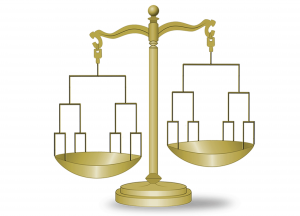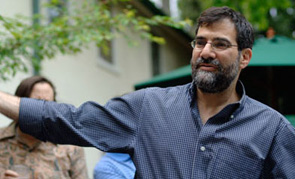The year of my record
The New York Times is running a story today about college basketball pools. Throughout the 1980s I participated in an extremely elaborate one of these pools—derived complexly by Steve Brown. Through the mid-80s we were all together as graduate students at the University of Virginia in Charlottesville. The Times story describes Steve’s innovation, which was to give more credit to those who chose bigger upsets (e.g. a 12-seed over a 5-seed); the system encouraged some wild swipes by those who fell behind in the early rounds. In 1985 I set a record that has never been broken: I chose correctly 84% of the time and it was a year in which there were a lot of upsets, s o I believe I also hold the record for the highest number of points won overall. So the picks were harder that year and I chose correctly at a higher rate than anyone ever. Proud of that. I rode Villanova (a 9 seed, I think) all the way, including their unlikely win against Georgetown in the final. Roll on, Rollie! Here are a few sentences from the Times story:
o I believe I also hold the record for the highest number of points won overall. So the picks were harder that year and I chose correctly at a higher rate than anyone ever. Proud of that. I rode Villanova (a 9 seed, I think) all the way, including their unlikely win against Georgetown in the final. Roll on, Rollie! Here are a few sentences from the Times story:
Similarly, in the early 1980s, Stephen Brown raided the microfiche at the University of Virginia where he was a graduate student. Armed with pencil and paper, he consulted past bracket results from The New York Times and, based on previous outcomes, calculated upset bonus points, which increased as the bracket narrowed.
“I was supposed to be writing my dissertation on an 18th-century poet named Edward Young,” said Brown, now an English professor at Rhode Island College.
The bonus points, though, were secondary to Brown’s core innovation: round-by-round picking. Instead of filling out an entire bracket before the first game, participants picked games in the second round after knowing the results in the first, and so on. The structure keeps more participants in the running, as anyone with a bad first round, say, can make up for it with a good second round — particularly if there are more upsets, and thus more available upset bonus points.
“I never liked the idea of filling out the brackets,” he said, adding, “It makes so much more sense, and would take more judgment and skill, if you knew who was actually playing every game.”
Brown’s pool survives to this day, administered by his nephew. So does a decades-old offshoot centered in the Washington area. (Full disclosure: The offshoot is this reporter’s annual pool of choice.)




 Al Filreis is Kelly Professor, Faculty Director of the Kelly Writers House, Director of the Center
for Programs in Contemporary Writing, Co-Director of PennSound, and Publisher of Jacket2—all at the University of Pennsylvania. Among his books are Secretaries of the Moon,
Wallace Stevens & the Actual World, Modernism from Left to Right, and Counter-Revolution of the Word: The Conservative Attack on Modern Poetry, 1945-60. His new book is
Al Filreis is Kelly Professor, Faculty Director of the Kelly Writers House, Director of the Center
for Programs in Contemporary Writing, Co-Director of PennSound, and Publisher of Jacket2—all at the University of Pennsylvania. Among his books are Secretaries of the Moon,
Wallace Stevens & the Actual World, Modernism from Left to Right, and Counter-Revolution of the Word: The Conservative Attack on Modern Poetry, 1945-60. His new book is  Founder/Faculty Director,
Founder/Faculty Director, 